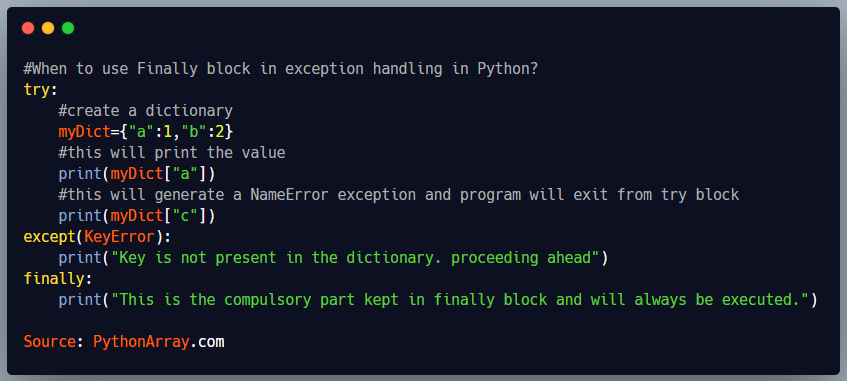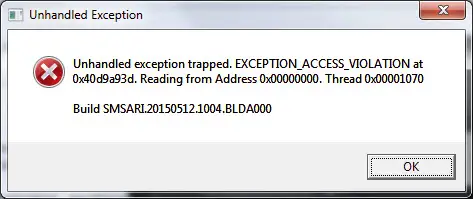

The finally block is optional and contains code that will always be executed, regardless of whether an exception was raised or not. If the exception raised is not caught in any of the except blocks, the program will stop executing. If an exception is raised, the program will immediately jump to the except block that corresponds to the type of exception that was raised. The try block contains the code that may raise an exception. # code to always be executed, regardless of whether an exception was raised or not The basic structure of the try-except-finally block is as follows: try: It allows you to catch and handle exceptions that may occur in your code, and also provides a way to perform any necessary cleanup or resource management tasks. The try-except-finally structure is a fundamental concept in Python exception handling. It allows you to handle errors gracefully and continue execution, rather than having the entire program crash. Understanding and properly implementing exception handling in Python is crucial to creating robust and reliable code. This allows you to perform any necessary cleanup or resource management tasks, even in the event of an error. The finally clause is a block of code that will always be executed, regardless of whether an exception has been raised or not. Best Practices for Using the Finally Clause in Exception HandlingĪdditionally, the finally clause can also be used in conjunction with the try-except structure.Using the Finally Clause to Clean Up Resources.

The try block contains the code that may raise an exception, and the except block contains the code that will handle the exception if one is raised. These exceptions can be handled using the try-except structure, which allows you to catch and handle the exception in a specific way. It is an important concept in programming as it helps to prevent your code from crashing and allows it to continue running even in the event of an error.mIn Python, exceptions are raised when a program encounters an error or unexpected condition. Exception handling is a mechanism in Python that allows you to handle errors and exceptions that may occur in your code.


 0 kommentar(er)
0 kommentar(er)
